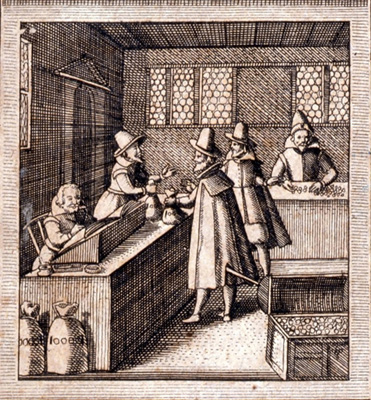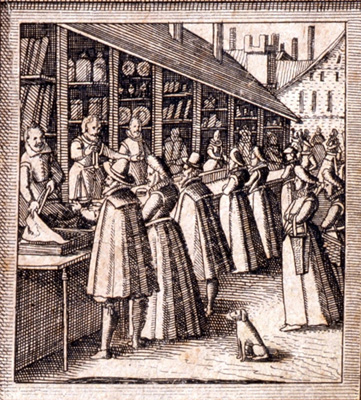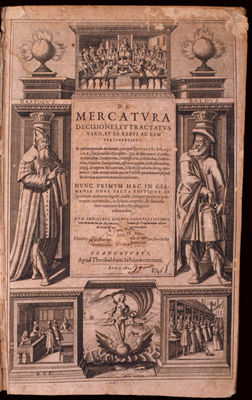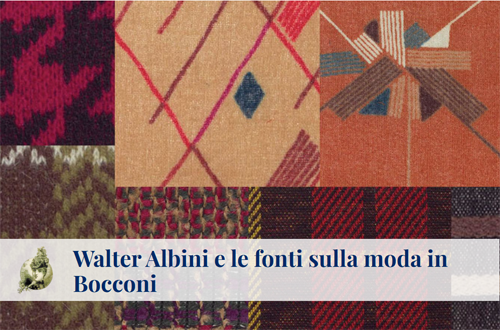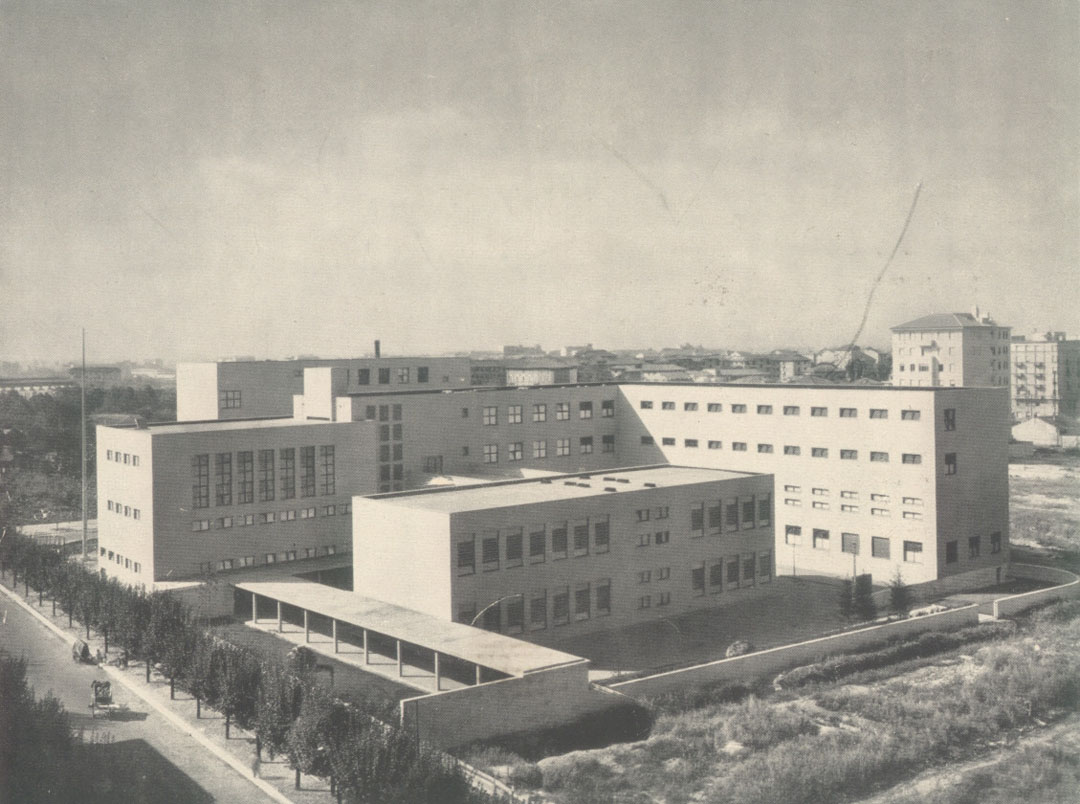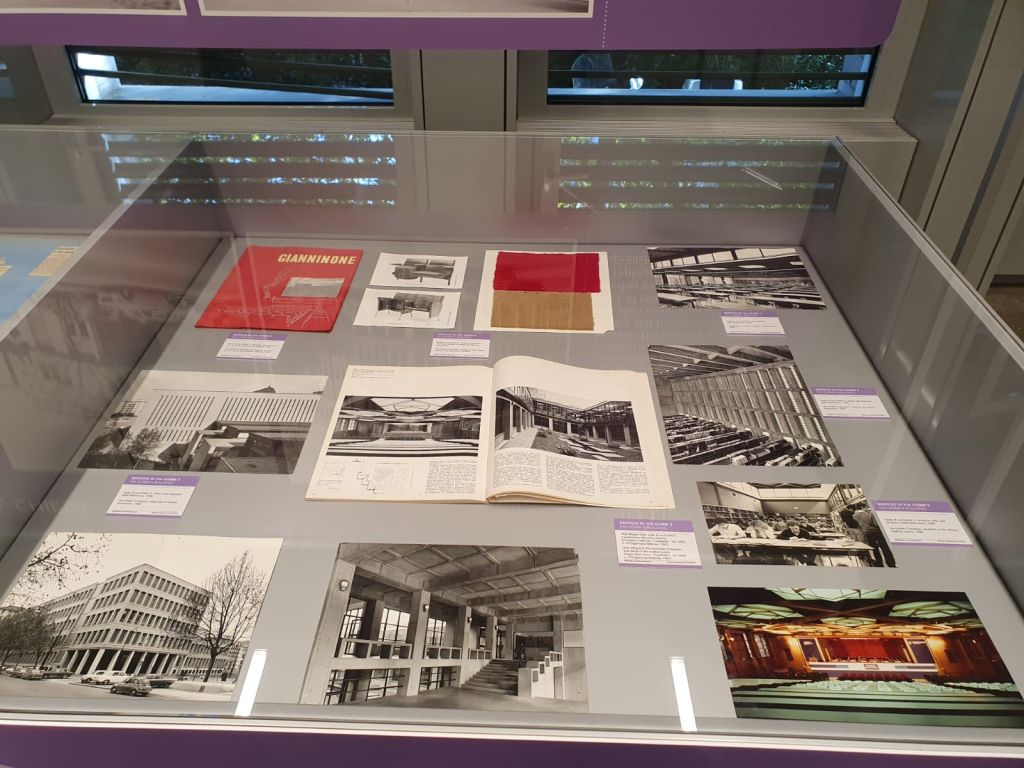Angelo Sraffa's early printed books
Several years ago, the son and the wife of the late rector Angelo Sraffa (rectorate: 1917-1926) donated to Bocconi University a collection of printed legal texts that belonged to Sraffa and included an interesting selection of early printed books, some particularly rare and precious. Professor Sraffa’s personal library was integrated within Library collections, therefore its sense of unity got lost. Recently, the collection has been restored thanks to the ex libris that Sraffa placed on the front pastedown of his books.

Angelo Sraffa (1865-1937) collected books following specific criteria and, undoubtedly, guided by his spirit of bibliophile and collector. His collection of ancient legal books comprised the most significant volumes of modern commercial law, both doctrine and jurisprudence. Sraffa was a successful lawyer and professor of Commercial Law; he was committed to the promotion of culture in Bocconi and other universities; he actively contributed to the journal Rivista di diritto commerciale and the encyclopedia Enciclopedia Treccani and he was not simply a book collector. He used the ancient legal texts he collected with intuition and passion for his scientific research, that always featured a historical introduction. For this reason Sraffa used, read and knew all the volumes from the 16th, 17th and 18th centuries, that were already originally conceived as practical books for past lawyers and legal experts. One of the most interesting parts of the collection consists in multiple editions of the first treatise of commercial law by Benvenuto Stracca, published for the first time in Venice in 1553 by Paolo Manuzio.
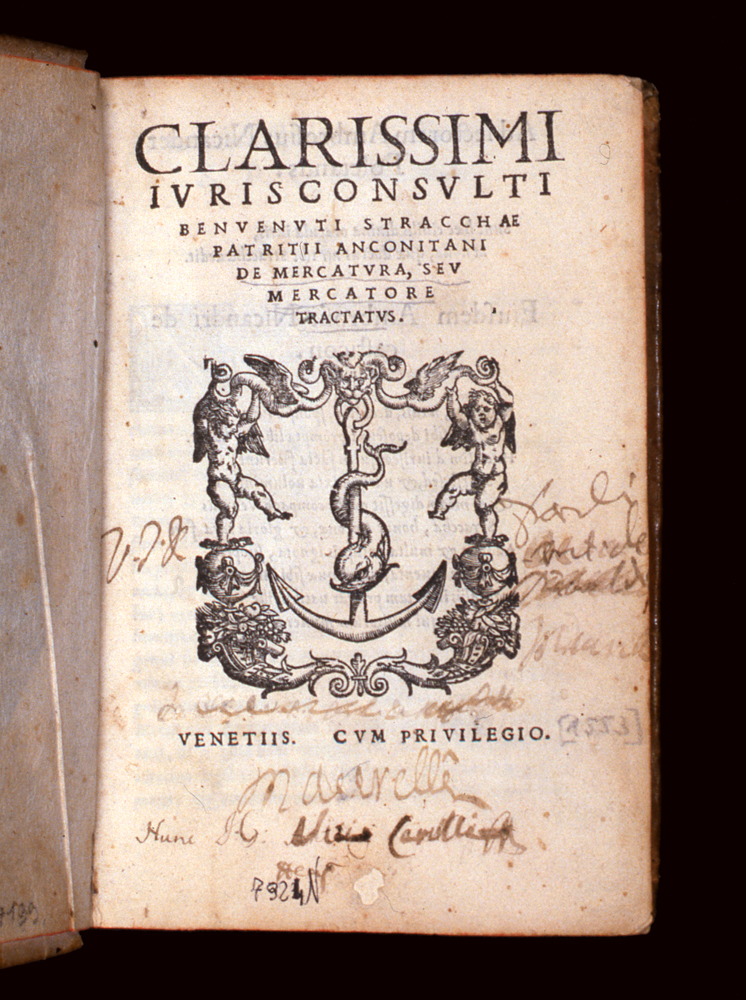
Stracca, who was a highly educated lawyer and jurist, was the first to write an entire treatise dedicated to commercial law. It was thanks to him that commercial law became an independent branch of law. Still, even if lying on a solid scientific and practical basis, until the 16th century the Ius mercatorum lacked a general theoretical framework given by the maximum law experts, the jurisconsults who graduated at University and benefitted from the highest prestige in Europe. From a theoretical perspective, the history of commercial law in the modern age started exactly with the De Mercatura by Benvenuto Stracca and coincided with the history of its gradual secularization. Angelo Sraffa, who firmly believed in the historical dimension of commercial law, was particularly fond of Benvenuto Stracca. He owned different editions of De Mercatura: it is likely that he patiently searched for each single edition, perhaps following the meticulous indications included in an essay by Luigi Franchi in 1888 (Benvenuto Stracca. Giureconsulto anconitano del secolo XVI. Note bio-bibliografiche), which Sraffa preserved in the Miscellaneous section of his library.
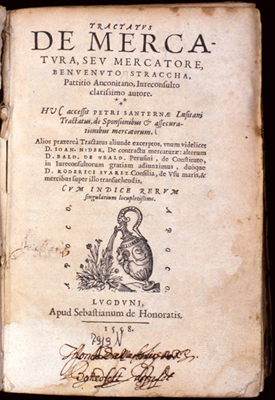
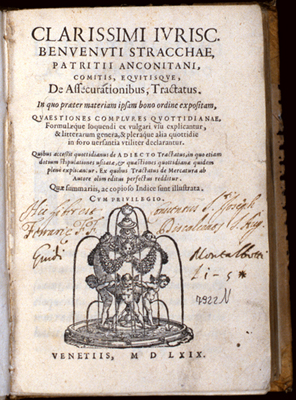
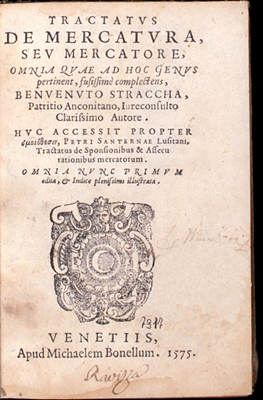
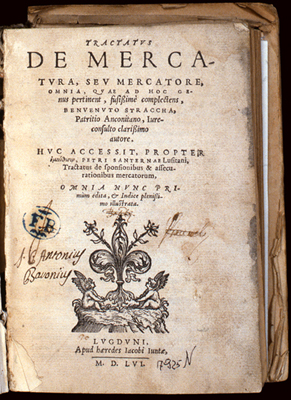
The trading environment that inspired the work of Benvenuto Stracca was definitely not very lively: in the mid 16th century, Ancona had just been conquered by the Papal government and the most interesting business and earnings took place elsewhere. In addition, the treatise is not particularly original and content is lacking, as many of the contracts were not included. Stracca, for example, did not cover with insurances, exchanges or companies. Still, despite the clear downsides and shortcomings, the De Mercatura had an immediate and long-lasting “global” success: the first Venice edition was followed by new editions from France, Germany and again Venice. Using frameworks and concepts from ius civile, Stracca managed to give scientific independence and dignity to ius mercatorum, presenting a specific set of rules for merchant activities: the science of commercial law has Italian origins, even if at that time the centre of trade was elsewhere. Stracca’s work continued to be published in the 17th century, even in the United Provinces of the Netherlands, that at that time competed with England for the leadership in maritime trade. Holland in particular had an original law doctrine, which was modern and attentive to the needs of exchanges (Dutch elegant jurisprudence).
